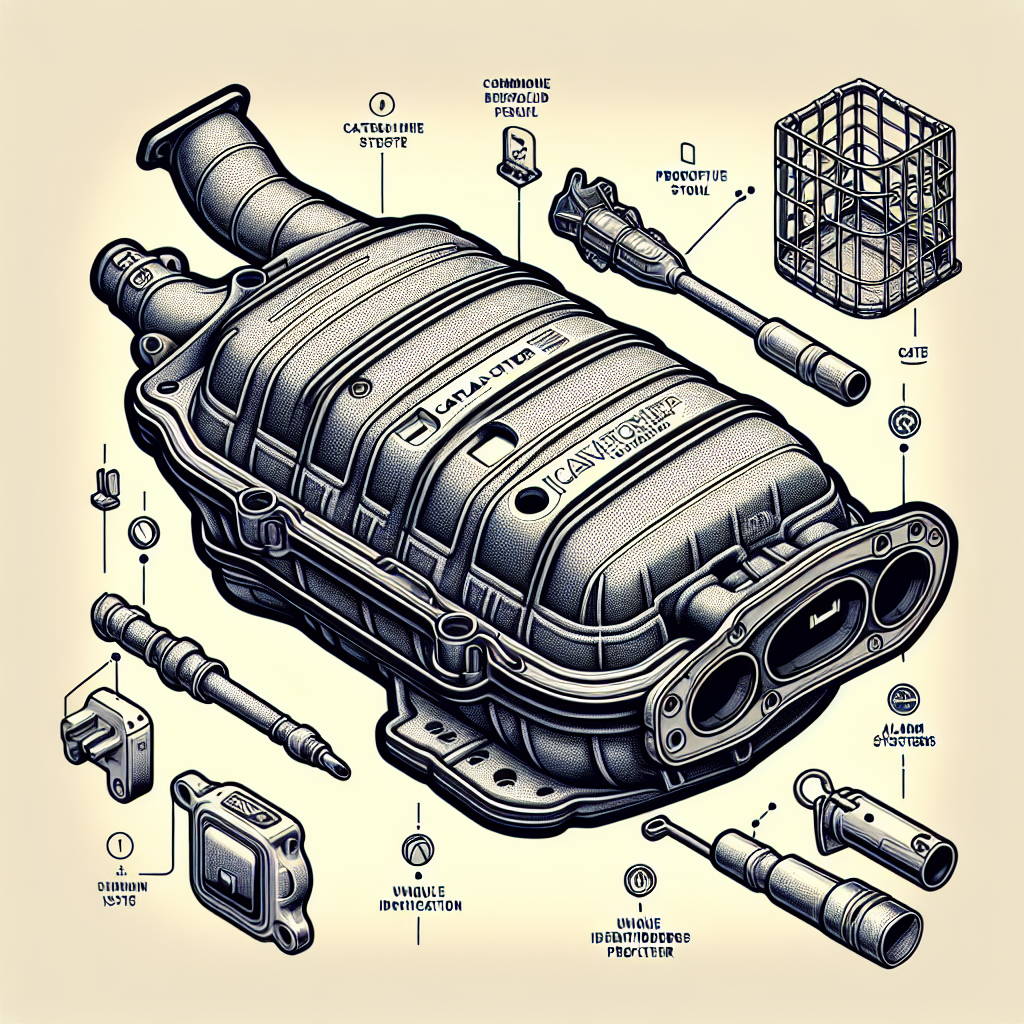
Introduction
Catalytic converter theft has surged in recent years, particularly targeting the 2018 Toyota Prius. This specific model is highly sought after by thieves due to the valuable metals within its catalytic converter. The crime commonly occurs in urban and suburban areas where thieves can quickly and efficiently remove the converter, causing significant damage and financial strain for the vehicle owners.
The 2018 Toyota Prius
The 2018 Toyota Prius is a beloved hybrid car recognized for its fuel efficiency and environmentally friendly features. It boasts a 1.8-liter 4-cylinder engine paired with an electric motor, delivering a total system output of 121 horsepower. This model also includes notable design and performance enhancements, making it a top choice in the hybrid market. Unfortunately, the high concentration of precious metals like platinum, palladium, and rhodium in its catalytic converter has made it an attractive target for theft.
Catalytic Converter Theft
How It's Done
Thieves often target parked cars in poorly lit or less monitored areas. They jack up the vehicle, use a saw to remove the catalytic converter, and make a quick escape. This entire process can take just a few minutes. The stolen converters are then sold on the black market for a substantial profit due to their precious metal content.
Impact on Owners
The theft of a catalytic converter not only impairs the vehicle's performance but also imposes a hefty financial burden. Replacing the converter and repairing any additional damage can cost thousands of dollars. Furthermore, the inconvenience and downtime while waiting for repairs add to the owner's distress.
Prevention Tips
Practical Advice
- Park in Well-Lit Areas: Always park under street lights, near building entrances, or under security cameras to minimize risk.
- Install Anti-Theft Devices: Consider adding a catalytic converter cage, shield, or clamp to make removal more difficult.
- Engrave Your VIN: Mark your catalytic converter with your vehicle identification number to help trace it if stolen.
- Use GPS Tracking: Implement a GPS tracking device to monitor your vehicle and receive alerts in case of tampering.
- Community Involvement: Stay aware of your surroundings and report any suspicious activity. Collaborate with local law enforcement and community groups to spread awareness and develop preventive measures.
Legal Implications
Consequences for Thieves
Catalytic converter theft is a felony in many jurisdictions, carrying severe penalties including fines, jail time, and restitution. Thieves may face additional charges for larceny, vandalism, and illegal trade of stolen property. Laws in some areas now require scrap metal dealers to verify the seller's identity and keep transaction records, aiming to reduce the sale of stolen converters.
Case Studies
Real-Life Examples
- Los Angeles, California: A 2018 Toyota Prius owner faced repair costs exceeding $2,500 after discovering their catalytic converter had been stolen overnight.
- Seattle, Washington: A car dealership reported multiple 2018 Prius models targeted in a single night, resulting in substantial financial losses.
- Chicago, Illinois: Police arrested a group responsible for numerous catalytic converter thefts, many linked to 2018 Toyota Prius vehicles.
- Portland, Oregon: A community watch program and distribution of theft prevention flyers led to a significant reduction in catalytic converter thefts in the area, including from 2018 Prius models.
Conclusion
Awareness and proactive measures are crucial in combating the rise of catalytic converter theft, especially for vulnerable vehicles like the 2018 Toyota Prius. By taking preventive steps and collaborating with community efforts, owners can safeguard their vehicles from this costly crime. Stay vigilant, protect your investment, and contribute to collective efforts in addressing this issue.

